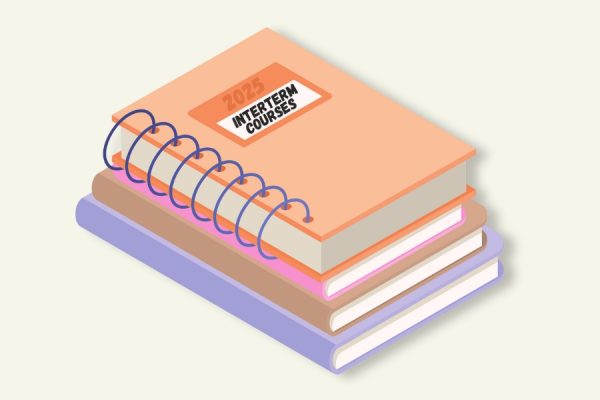Summer courses to be ‘steeply discounted’
In an effort to increase the number of students who take summer courses from Baker rather than other institutions, Baker University will be launching a seven-week online summer term for a steeply discounted price.
In addition to the traditional summer I and summer II full terms, this term will consist of about eight or nine common summer courses students generally transfer in and will be called the Summer Away Online pilot because it is an experiment for the university. The term will run from June 2 to July 20.
After looking at the number of students who brought in coursework from other colleges or universities, Brian Posler, executive vice president of academic affairs and dean of the College of Arts and Sciences, wanted to find a way to compete with other institutions.
“That got me to thinking, ‘Boy, I would much rather these students be taking Baker courses than taking courses at other institutions,’” Posler said. “And so that got me asking, ‘Why are these students taking them from other places rather than from us?’ And the key ingredient we learned when we talked to some students was that it was price.”
Rather than the traditional $425 per credit hour, courses will cost around $150 per credit hour. The special term is also university-wide, unlike the other summer sessions, meaning students from the School of Nursing or School of Professional and Graduate Studies (SPGS) students can take these courses.
The preliminary list of classes to be offered include the following:
- ED180 Concepts of Health
- EX245 Human Nutrition
- PH120 Ethics
- PY234 Psychopathology
- MU320 World Music
- QS211 Scientific Inquiry
- QS311 Global Culture and Community
Although plans are not final yet, there may also be an astronomy course and a School of Professional and Graduate Studies offering.
The QS211 and QS311 courses will be linked to astronomy and world music, respectively; for example, students in Q3211 must take MU320 World Music at the same time.
Assistant Professor of Communication Kimberly Schaefer will be teaching the QS211 and QS311 courses and plans to take advantage of the online format.
“I study communication technology, and so I like experimenting with technology, and these two classes provide me the opportunity of doing that,” Schaefer said. “I won’t be able to see the students face to face every day, but I will be using different types of technology to be able to talk with them and be able to communicate with them.”
Because of the difference in price structure, the compensation for faculty teaching these courses will also be different. Rather than being based on rank of professors, pay will be based on the number of students enrolled in their classes.
“It’s in everybody’s interest for the faculty to have more students rather than fewer in these online courses if they can, because that way the university would make more money and also the faculty would make more money,” Posler said.
Senior Becca Uhrig took an online astrology course from Neosho County Community College during the summer of 2012 and said if the Summer Away Online pilot had been available at the time, she would have taken advantage of it.
“It would be a lot easier than going someplace and getting your transcripts and everything transferred,” Uhrig said.
Posler said there are other advantages to taking Baker classes rather than classes from other institutions. For example, a student’s grade point average is based solely on classes taken at Baker.
Posler also said it would also be disadvantageous for students enrolled in the Quest program to take linked courses elsewhere because “it’s unlikely to have that kind of formulation that would count exactly as a QS and a link.”
Sophomore Marta Czarnick agrees that the program will have benefits, but because of the limited number of courses offered, could be more beneficial to some students than others.
“By the sounds of it, I would think that it would be a whole lot easier because you don’t have to worry about applying to another college since you are not regularly attending there as a student, and you don’t have to pay extra and try to get the financial aid to go over there,” Czarnick said. “I would think that the whole process would be easier both on the college transcript and just you as a person. It depends on what courses are offered on there, of course.”
After its initial launch, the program can be evaluated, changed or removed altogether. A successful launch would mean more students are enrolled in summer courses at Baker and fewer students are transferring credit hours in at the end of the summer.
“Those are the two pieces I’m going to look at at the end of this summer to evaluate whether this was a success or not,” Posler said. “So we’ll see how it goes and see whether or not students will choose these courses. … We’ll just see if it works, and if it does, then we’ll try to expand it in future years.”






